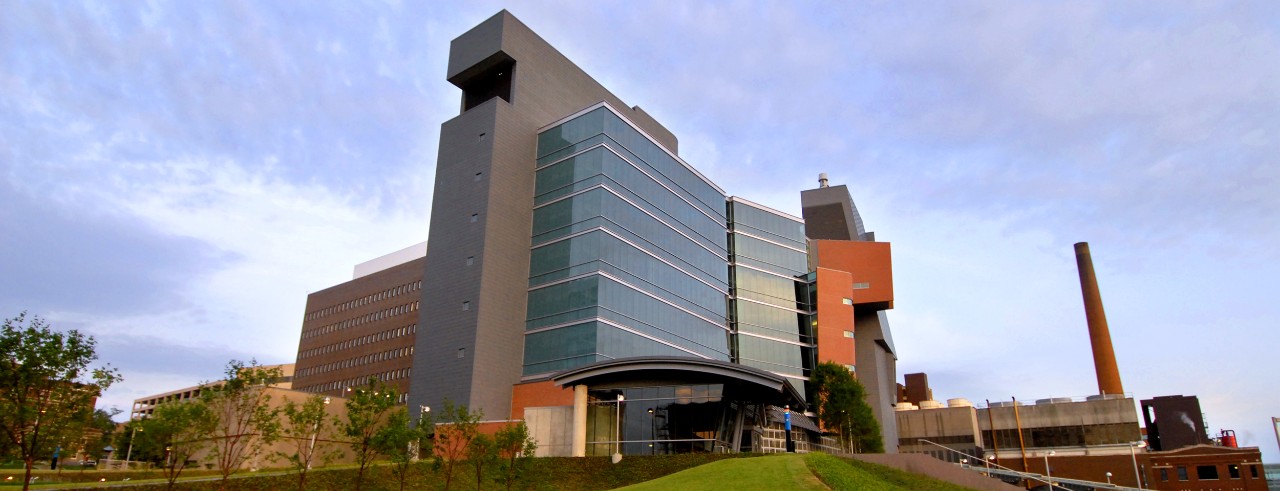
UC psychologist works with victims of human trafficking for CHANGE
January is Human Trafficking Prevention Month
Maria Espinola, PsyD, assistant professor in the Department of Psychiatry and Behavioral Neuroscience at the University of Cincinnati (UC) College of Medicine, has made it a focus of her career to help victims of trauma, particularly women and children who have become victims of human trafficking.
“Cincinnati’s geographic location, transient populations and high rates of poverty and homelessness, paired with the opioid epidemic, places already vulnerable women and children at an increased risk for sexual exploitation and trafficking,” says Espinola.

Since joining the UC faculty in 2016, Espinola has been involved in extensive advocacy efforts to support victims of human trafficking in Ohio. She has spoken at the Ohio Attorney General’s Office and Ohio Supreme Court roundtables to help judges, legislators and advocates understand the specific circumstances of trafficking victims, including how to work with survivors, recognizing immigrants’ vulnerability to exploitation and understanding the mental health issues that can prevent victims’ from successfully reintegrating back into society.
In May 2018, Espinola received funding from the Hamilton County Court to train court staff members on trauma-informed approaches, conduct assessments and offer therapeutic services to CHANGE Court participants.
CHANGE Court—which stands for Changing Habits And setting New Goals is Empowering—is a judge-supervised treatment program created in 2014 by the Honorable Judge Heather Russell with the goal of offering a voluntary, non-adversarial approach to victims of sex trafficking who have pled guilty to offenses related to solicitation or drug use.
“We need there to be a shift in understanding, that these women are victims not criminals, and I think it’s remarkable that Hamilton County is taking great strides to change these perceptions among law enforcement and the courts, and to offer a support system to break the cycle,” says Espinola.
"All the women who participate in this voluntary, two-year program have histories of drug addiction, often with opioids, and have experienced childhood trauma, poverty, homelessness and/or mental health issues. These issues made them particularly vulnerable to sexual exploitation and trafficking.”
The CHANGE Court program is divided into three stages: 1) safety/stabilization; 2) recovery; and 3) empowerment. During the safety phase, participants usually spend 90 days in a jail-based treatment, detoxing from controlled substances and await placement in transitional housing/residential treatment. During the recovery phase, participants stay in residential treatment and are connected to Medicaid to address their often severe physical and mental health needs. During the empowerment phase, CHANGE court offers participants job training and placement, independent housing and assistance with driver’s licenses reinstatement and child custody issues.
Espinola works with CHANGE Court participants during the recovery and empowerment phases. She offers a trauma-informed, culturally sensitive approach to treat CHANGE Court participants’ substance abuse and mental health issues, “while providing them with skills to secure employment, obtain safe housing, live a healthy lifestyle, further their education and develop a strong support system,” she says.
As CHANGE Court Treatment Team’s psychologist, Espinola participates in Judge Russell’s weekly team meetings, where she provides recommendations, psychoeducation and trainings. In addition, Espinola collaborated with Judge Russell to develop a community-based mentorship program to support CHANGE Court participants’ successful reintegration into society.
Next Lives Here
The University of Cincinnati is classified as a Research 1 institution by the Carnegie Commission and is ranked in the National Science Foundation's Top-35 public research universities. UC's graduate students and faculty investigate problems and innovate solutions with real-world impact. Next Lives Here.
Related Stories
Blood Cancer Healing Center realizes vision of comprehensive care
February 19, 2026
With the opening of research laboratories and the UC Osher Wellness Suite and Learning Kitchen, the University of Cincinnati Cancer Center’s Blood Cancer Healing Center has brought its full mission to life as a comprehensive blood cancer hub.
Scientists: Slushy snowmelt isn’t just a nuisance
February 13, 2026
Slushy snowmelt isn’t just a nuisance, scientists say. It can send a toxic flood of road salt, sand and car exhaust, as well as dog poop, into rivers and streams, The University of Cincinnati College of Medicine's Yevgen Nazarenko, PhD, assistant professor of environmental and industrial hygiene in the Department of Environmental and Public Health Sciences, recently told The New York Times that research has shined a light on how pollution from all sorts of vehicles — planes, cars, trucks — can get trapped in the snow.
Can Cincinnati become a Blue Zone?
February 12, 2026
Under the Blue Zones Project umbrella, 75 U.S. cities currently are working on group diet and exercise programs while also changing the community’s culture, so that residents are encouraged to make healthy choices. Cincinnati is not an official Blue Zones Project city yet, but Florence Rothenberg, MD, adjunct professor of cardiology at the University of Cincinnati College of Medicine and clinical cardiologist at the Cincinnati VA Medical Center, is leading one public effort to encourage a Blue Zone lifestyle. Her work was recently featured in Cincinnati Magazine.
